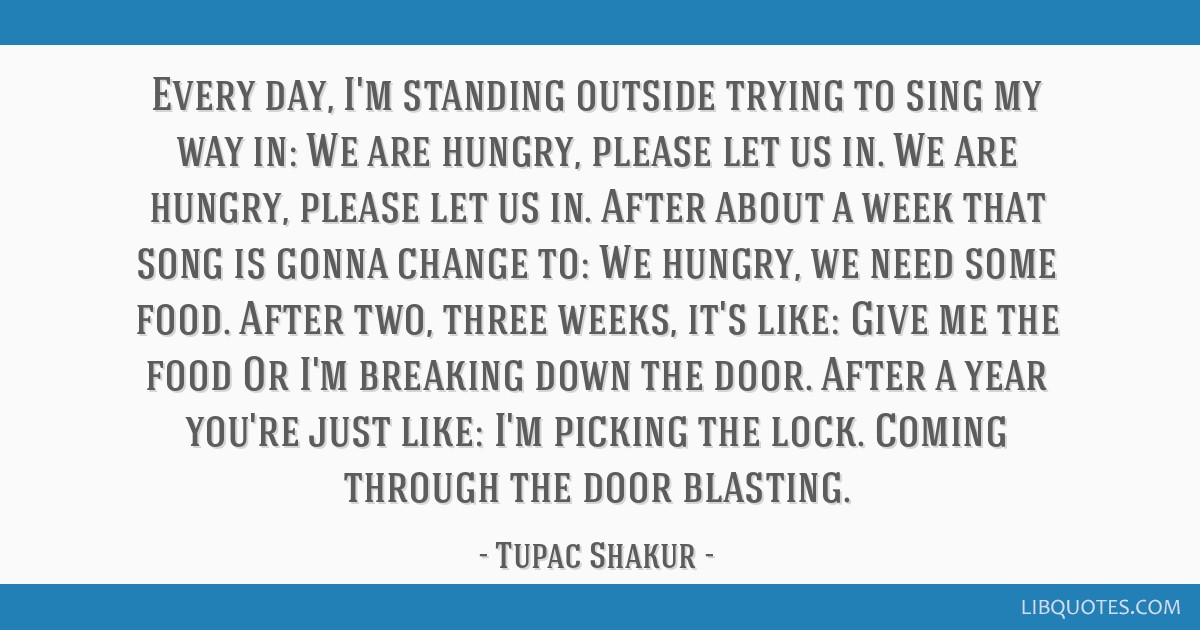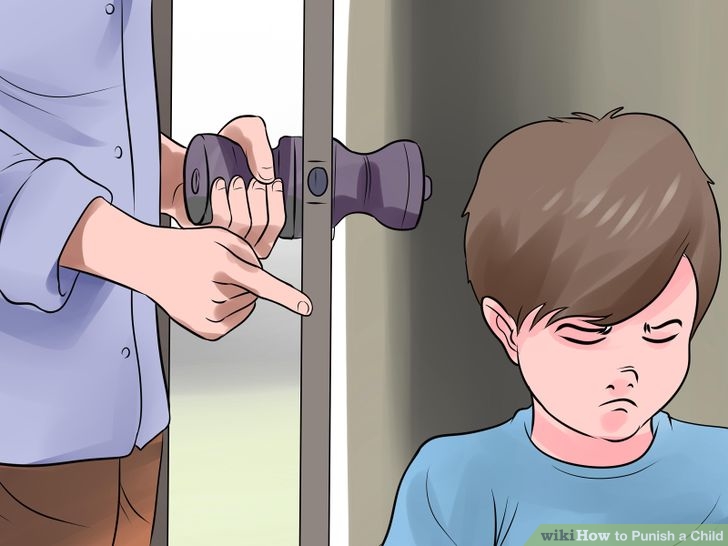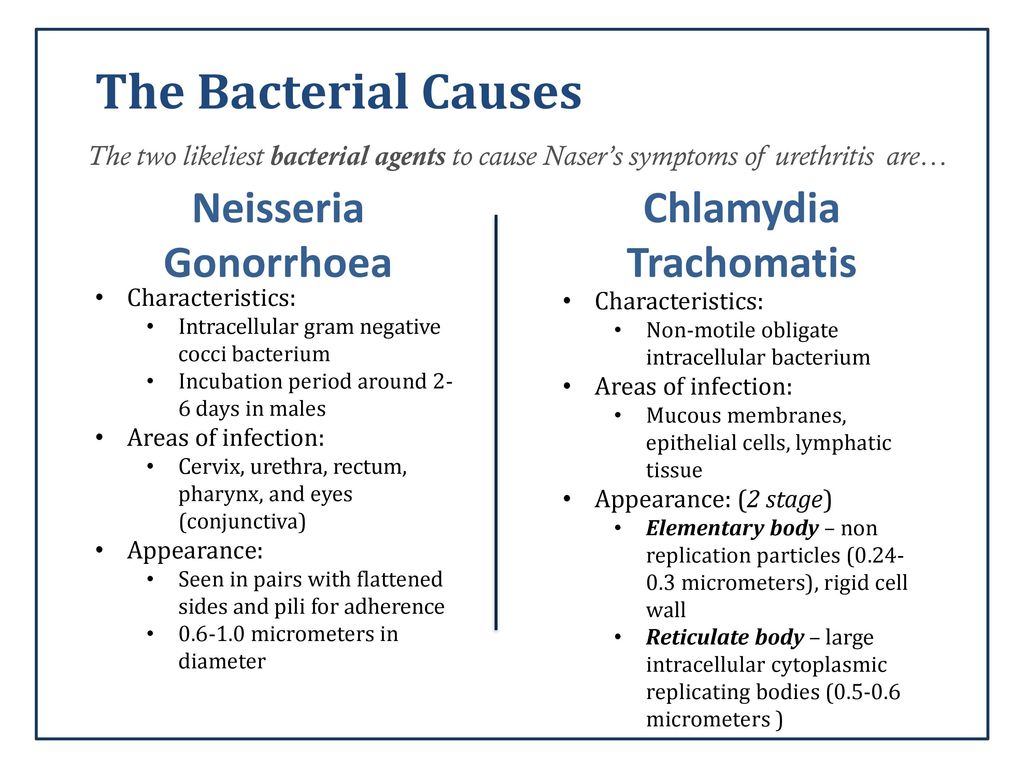How to tell your child you love them unconditionally
6 Practical Ways to Show Unconditional Love to Kids
Parenting is all about relationships. And really good parents realize that having great relationships with their kids doesn’t just happen by accident. Those relationships are created by commitment, hard work, and unconditional love.
Since most parents do love their children, it sounds like this should be easy, right? Well, most parents can also attest that this is simply not the case.
The problem lies in the fact that so many parents do not know how to convey unconditional love to their kids; and, as a result, their children do not feel loved.
For nurturing parents looking for a roadmap, there are some simple steps you can follow to make sure you are conveying unconditional love to your kids.
What Is Unconditional Love?
First, though, it’s important to understand what unconditional love really is. Unlike popular belief, unconditional love is not a soft, sentimental emotion. It is an intentional decision to relate to a child in a way that separates the person from their behavior, valuing them for who they are rather than for what they do.
Unconditional love also encourages responsibility. Being permissive is not unconditional love. In fact, a child raised in an environment with no rules or consequences will actually perceive it as a lack of love. So then, unconditional love helps children learn from their mistakes and coaches them to make healthy and safe choices.
Why is Unconditional Love so Important?
Research shows that unconditional love is the most important part of a child’s self-concept. A study conducted by The ARKGroup and the University of Texas School of Public Health found that a person’s self-concept (or how they feel about themselves) is made up of their “self-worth” and “self-esteem.” Self-worth has to do with performance and makes up a third of a person’s self-concept while self-esteem is created by unconditional love when a person is shown they are valued for who they are. This portion is two-thirds of a person’s self-concept.
This portion is two-thirds of a person’s self-concept.
What this means is that while it is important to help a child achieve and perform, providing them unconditional love is twice as important a factor in how they feel about themselves.
6 Practical Ways to Show Unconditional Love to Kids
Wondering how to provide unconditional love to your kids? Here are some simple ways that, when done consistently, can have profound results in your relationship with your child.
- Say I love you
One of the best ways to show love for a child is to frequently tell them “I love you.” A child’s heart hungers for these words so we should tell them every day.
- Verbal Affirmation
Look for opportunities to affirm your child verbally. Encouraging words like, “I’m glad you are my child,” or “I know you’ll make the right decision,” help build a child’s confidence and nurture your relationship.
- Physical Touch
Children have an incredible need for the loving touch of nurturing adults. Touching may take a variety of forms, from playful wrestling or a pat on the back to hugging and kissing; but the need to be touched in positive ways is as real and necessary as the need for air and water.
- Eye Contact
While it’s easy to try to multi-task when listening to your kids, eye contact is an important element in providing parental love. “Giving your eyes” to your child when he or she is talking tells them that you care about what they are saying, and ultimately, that you care about them.
- One-on-one Time
Another technique for showing love is individual attention. This means giving a child your full, undivided attention – the sort of attention that allows a child to feel special and important. Psychologists encourage parents to give a minimum of ten minutes of individual attention to each child every day.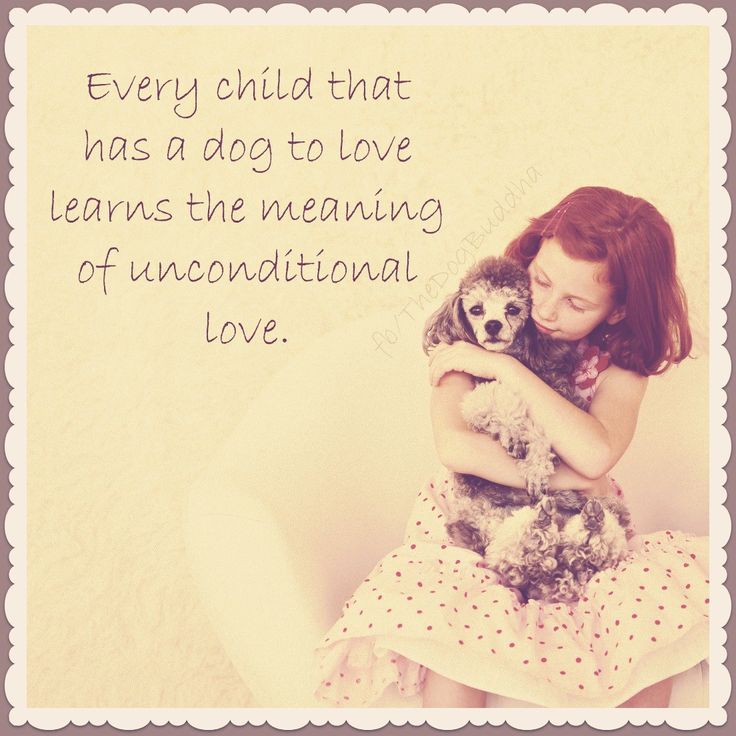
- Empathy
Another important way to express unconditional love is empathy. Empathy requires understanding and compassion. Instead of judging a child’s feelings, empathy helps a child understand their feelings and proper ways to manage them.
These small steps to show unconditional love to your child can have a big impact on your child’s self-concept. And, using these techniques consistently will help you build healthy, trusting relationships with your children through all stages of their development.
For more parenting resources, visit www.thearkgroup.org.
- Author
- Recent Posts
Dr G
Dr. B. Glenn Wilkerson is recognized as one of the nation’s foremost authorities in helping adults to provide the unconditional love and care which elevate the self-esteem and create a positive self-concept in children. He is President and Founder of The ARKGroup and the nationally-acclaimed ARK (Adults Relating to Kids) Program which incorporates research-based best practices in parenting and teaching.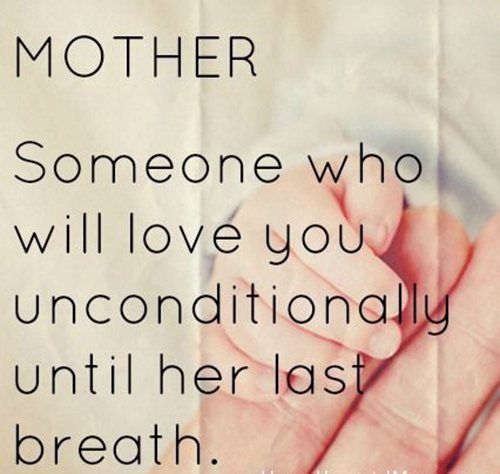 Dr. Wilkerson, a retired minister, is the author of Trekking: Searching for Love and Self-Esteem, If Jesus Had a Child, and co-author of Reflections on Mortality: Insights into Meaningful Living.He can be contacted at [email protected].
Dr. Wilkerson, a retired minister, is the author of Trekking: Searching for Love and Self-Esteem, If Jesus Had a Child, and co-author of Reflections on Mortality: Insights into Meaningful Living.He can be contacted at [email protected].
Latest posts by Dr G (see all)
10 Surprising Ways Your Child Needs You to Show It
9650 shares
Inside: Learn 10 Ways Parents can practice unconditional love with their child and why it’s so important to their child’s emotional development.
Table of Contents
⭐️
Free 9-page Expert Master guide⭐️>> 5 Secrets to MORE cooperation and LESS conflict with your strong-willed child (Click here to grab)“I don’t think he’ll wake up from the flash…” I think to myself as I stand over my sleeping 6-year-old and sneakily position my phone to snap an angelic picture of his perfect little nose and feathered eyelashes.
It’s hard to describe how this moment feels as a parent isn’t it?
For me, it’s sort of as if everything else in the world has melted away and the only thing strong enough to remain is the radiating reverberating unconditional love I feel for my child. The…
The…
I can’t believe you’re mine love.
I’d throw myself in front of a bus for you at any moment necessary, love.
Tomorrow I’m going to make sure you know just how far and just how unconditionally my love for you stretches, love.
Then the sun starts rising and alarm clocks start sounding (I’m convinced hell must be chock-full of alarm clocks), and all of the minutiae that had melted away the prior evening is now relentlessly assaulting me from every angle.
Life ‘turns on’ and very quickly my affection towards my children starts sounding less like radiating unconditional love with no strings attached, and more like very impatient conditional love with “do the things now child if you’d like to live another day” type of strings attached.
Conditional Love Meaning
Conditional love is simply, love with conditions. This means that your love for your child is contingent on their actions, or things happening with them (or not happening).
Conditional love might make a sneaky appearance in comments like these:
“We do so much for you every day and this is how you repay us?”
“Your brother manages to make it out to the car on time every morning, why is it so difficult for you?”
“Why do you insist on doing everything you can to make homework more stressful?”
“You’re going to wear THAT?!”
Read >> 50 Fun and Calming Bedtime Activities for Kids
Parenting is arguably the hardest job on the planet, and if we’re honest, most adults in general often have lots of subconscious ‘invisible strings’ attached when it comes to showing love and affection to children.
These strings likely stem from the natural power imbalance that exists in the parent-child relationship in combination with the antiquated and harmful views of past generations that sought to dehumanize children.
Thankfully, we now live in a world with a growing awareness of the respectful care and conditions needed to raise healthy thriving humans.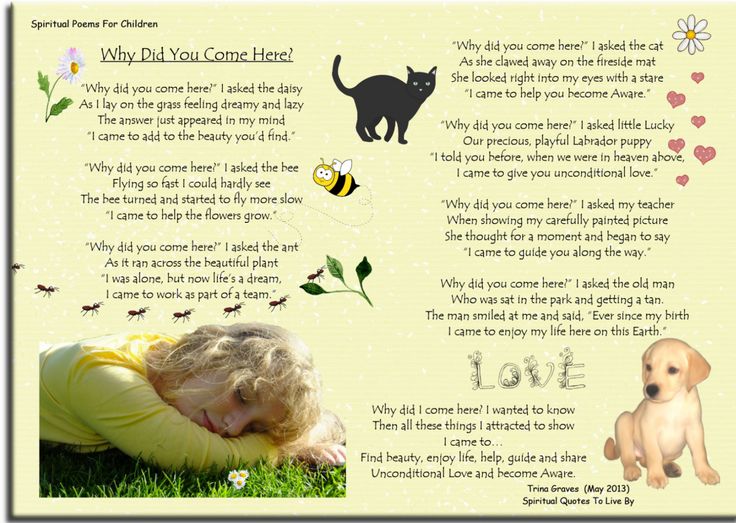
It is because of this power differential inherent in the parent-child relationship that it is essential to be aware of sending the message that our child ‘owes us’ us for the duties that in fact, we accepted and agreed to when we made the decision to bring another human being into the world.
Unconditional love meaning
“Unconditional love is known as affection without any limitations, or love without conditions. This term is sometimes associated with other terms such as agape love or complete love.
Each area of expertise has a certain way of describing unconditional love, but most will agree that it’s a “type of love which has no bounds and is unchanging.”
It means offering love to your child without any expectation of repayment.
When we put that definition into the nitty-gritty context of everyday life with kids, I think unconditional love looks a lot like Loving your child even when it’s really really stinking hard.
For children, love and attachment are primary needs that create the foundation for almost all social and emotional development.
I love you unconditionally
I know without a doubt that the love I have for my children (sleeping angelically or not) is unconditional love. I’m also fully aware that when stressed, I might act in ways that indicate otherwise.
On a day-to-day basis, was I communicating my unconditional love effectively enough to my children?
On any given day, were they able to ‘file away’ more examples of unconditional love or in fact, conditional love?
After all, love is communicated primarily by actions and not by words or loving bedtime photo shoots…
I started thinking, what actions can parents take each day to communicate how they truly feel about their child beneath it all? I love you unconditionally forever and ever.
Time
Children are concrete thinkers, meaning ‘a more literal form of thinking that focuses on the physical world”. This means that demonstrations of love that they can see, touch, and feel will most strongly communicate to them.
This means that demonstrations of love that they can see, touch, and feel will most strongly communicate to them.
Read >> 10 Strong-Willed Child Characteristics (and how to deal with them effectively)
When your child sees you taking time each day to get down on the floor and play that brutally boring board game or read Goodnight Goodnight Construction Site for the ninth time this week, they have a ‘real-life’ tangible example of what your unconditional love looks and feels like.
Accepting ALL emotions
One of the most powerful ways your behavior will communicate ‘I will love you unconditionally’, is to show your child they won’t be shut down or minimized when they’re experiencing powerful emotions.
It’s time to permanently put to sleep those catchy toxic go-to phrases, “don’t cry” “oh you’re fine”, “suck it up and deal with it” or, “you’re seriously going to cry about THAT”.
If you want to kick these unhelpful responses to the curb, I’d recommend closing your eyes and imaging your partner/significant other saying these things to you while you’re in a highly emotional state.
The horrible instant visceral feeling you get will serve as an ongoing reminder to respond to your child’s emotions the way you’d like yours to be responded to.
Setting limits and boundaries
Sometimes parents misinterpret the term unconditional love to mean ‘love without boundaries’.
If you didn’t have healthy limits set for you as a child by your caregivers in a respectful way, it will be exponentially more challenging to make tough calls when necessary (even when they’re in the best interest of your child).
If you grew up with overly stringent limits that were enforced with unhealthy motivators like fear or even physical punishment, you may find yourself either unwittingly falling into those same harsh reactions with your child, or taking the opposite route, and finding it very difficult to enforce any limits due to the temporary discomfort it provokes in your child.
Healthy boundaries and limits set confidently and respectfully, go hand in hand with unconditional love, because they meet your child’s vital primary needs for safety and security.
When you set limits for your child, you’re essentially communicating, no matter how hard and uncomfortable it is for you or me at this moment, I will see the bigger picture and try to do what’s best for your well-being.
Accepting their personality traits
Every child comes into the world with certain characteristics and tendencies ‘hard wired’ into them. These factors known as temperament and personality have been studied for many decades and play a large role in how your child interacts with the world around them.
Getting to know your child’s personality traits and tendencies will allow you to work with them when necessary and help to support and encourage their unique and amazing gifts.
Some examples:
My child needs to move a lot, how can we find acceptable ways to move throughout the day in school?
My child is highly emotional, what support might they need to manage their emotions more effectively?
When you have either very similar or very different traits to your child in a given area, you may need to work harder to accept and support them.
Offering empathy
Climbing out of your adult brain to offer your child empathy, or the capacity to understand or feel what your child is experiencing, is perhaps the most powerful way to demonstrate your commitment to acknowledging and validating your child’s human experience.
When you try to imagine what it might be like to ‘walk in your child’s shoes when they’re fighting with their sibling or need to leave the classroom to attend a special needs learning group, you’re then able to offer the understanding and compassion your child needs to feel understood and loved unconditionally no matter what challenging situation they’re in.
Letting them persue their own interests
You spent your best years on the football field and you’ve always fantasized about the day your child would be ready for flag football, but as you’re downloading the registration form you hear their small voice, “I’m not playing football dad, I don’t want to get hit”.
There are two different directions this conversation can go.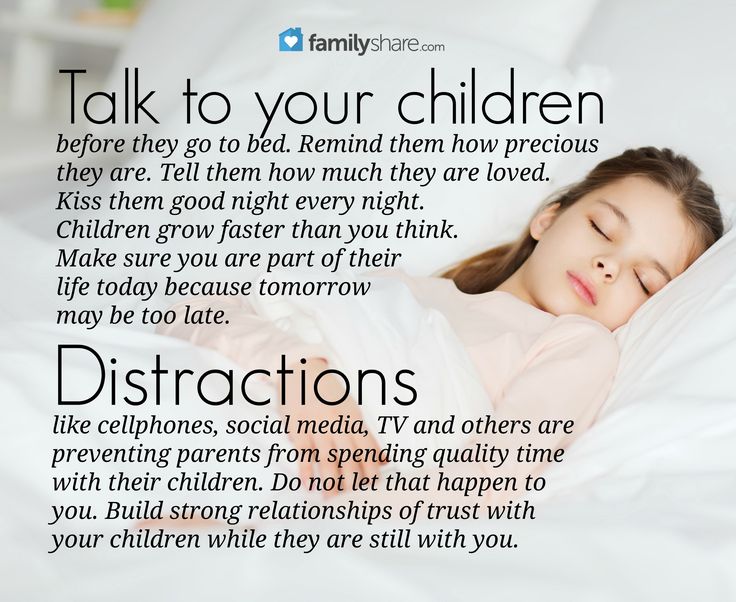 One is about meeting YOUR needs and the other is about meeting your child’s needs, and we’ll just leave it at that.
One is about meeting YOUR needs and the other is about meeting your child’s needs, and we’ll just leave it at that.
Offering forgiveness and grace
I can never hear this quote from Rebecca Eanes enough as a parent,
“Sometimes we expect, or even demand, a level of maturity our child has not reached. We project our fears and anxieties onto them instead of trusting. They all bloom in their own time. Tend the garden, and wait”.
Your child’s fastest path to learning is living. Your child is moving through the stages of human development while doing the best they can with the skills they have.
Your child will make mistakes and missteps, and these opportunities can either be used to help them learn through teaching (aka discipline), natural consequences, and learned accountability (fixing your mistakes), or what it feels like to be shamed and criticized.
Be on their team
Why ‘pick your battles’ instead of finding ways to facilitate peace?
While it is necessary to decide what limits and boundaries you will prioritize, you don’t have to go literally to battle with your child in the process.
Why not use your natural inherent power as the parent, to team up with your child and instead go to ‘battle’ with their challenges, together?
It’s “You had better get your act together or else!” vs. “It looks like being in the toy aisle is stressing you out, let’s find some ways to slow down and get under control together”.
When your child sees that you’re there for them even when things don’t look pretty in the Target checkout line, they’ll develop the trust essential for a relationship rooted in unconditional love.
Stop taking their behavior personally
While it may be easier to think of your child as the more self-centered one… often adults are incredibly short-sighted when it comes to their child’s behaviors.
We lament, “Why are they doing this to me?!”, “She’s just pushing my buttons!”, “This is a clear sign of disrespect!”
When actually, your child was too sleep-deprived to regulate her emotions, too ‘pre-school brained’ to have the impulse control to stop whining about the happy meal, and too passionate and focused about soccer to leave the field the first time asked.
When it comes to your child’s behaviors, it’s time to get over yourself and move on to what’s really going on for them.
Setting aside your own emotional experience to consider your child’s experience and support their needs in that moment, is where the unconditional love part factors in.
Model and teach consent
Physical touch is a huge way you can communicate unconditional love to your child, but the way you go about doing it matters.
The struggle is real. Your child is adorable and you want to hug, kiss and tickle them into oblivion… but how does that feel to them and their body?
Unconditional love means inhibiting your own desires (and maybe a tiny sense of entitlement as the parent) and giving your child the respect they deserve when it comes to their body.
Let them learn healthy bodily autonomy by picking out clothes that they feel good in, and wearing their hair how they’d prefer it.
Helping them learn what feels good and what doesn’t when it comes to physical affection/touch and other sensory experiences is a sure way to communicate unconditional love for your child.
Loving your child unconditionally might now come as easy as you may have thought.
When it comes right down to it, manifesting unconditional love with a child is VERY CHALLENGING, if you’re doing it right.
Read >> 95 Magical Encouraging Words for Kids
It means saying no to that ice cream cone even though it will bring tears.
It means sitting down to play Hotwheels even though it’s the last thing you want to do.
It means cultivating the self-awareness and humility to apologize and ask for forgiveness when you mess up.
It means letting go of your dreams to watch your child out on the soccer field and instead encouraging their dreams and love of theater.
It means taking the time to read about a toddler or presechool development, so you can put their behaviors into context and support them more effectively (instead of taking them personally).
The human condition is anything but simplistic, so inherently, humans loving other humans unconditionally won’t be easy.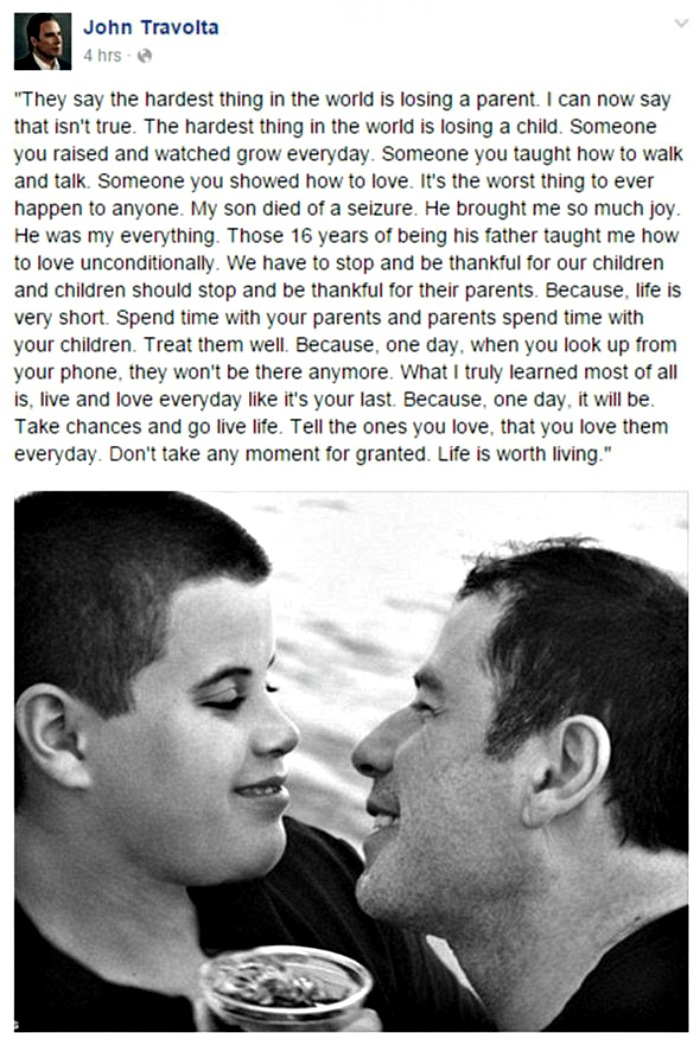
Thankfully, the relentless pursuit of trying your best to show your child unconditional love every day is all that’s necessary.
Want to Raise an Emotionally Healthy Child that will thrive out in the world? I created a free 5-day parenting course just for you! (sign up below)
SEND ME THE EMAIL COURSE
Other parenting articles you’d love:
75 Awesome Calm Down Strategies for Kids that Work
125 Positive Affirmations for Kids (For Every Situation!)
10 Simple Everyday Ways to Improve Your Child’s Behavior and Mood
The Best Way to Help a Child Deal with Anger Now (and throughout life)
About Angela Pruess LMFT
Welcome! I’m Angela, a Licensed Children’s Mental Health Professional, Positive Parenting coach, and mom to Spirited Kids that help me learn and grow (grey hairs) every single day. I believe EVERY child deserves to live their BEST life and that emotional health is the magic key to lifelong success and happiness. Read more about me and the Parents with Confidence manifesto.
Read more about me and the Parents with Confidence manifesto.
I LOVE YOU: 50 WAYS TO SAY IT TO YOUR CHILD
It goes without saying that parents love their children very much. But, unfortunately, not everyone knows how to show their heartfelt affection. Many believe that the child already knows that mom and dad love him, and extra "lisping" is useless. To criticize, to instruct, to scold is welcome, we can always do it. And expressing love is a problem.
It would seem that there is nothing easier than telling your child “I love you” or just hugging. But very often parents do not think about the need to tell their baby that they love him. It seems to them that since they feed him, buy toys, walk with him, then this is enough. Not really.
For parents, love for their child is natural, they know and feel it. But very often they forget to tell the child about it once again. But the manifestation of your feelings, whether it be words or hugs, these are truly necessary and real actions that are completely understandable to your child. For a baby, the world consists of his family, and for him there is nothing more significant than hearing that this world loves him.
For a baby, the world consists of his family, and for him there is nothing more significant than hearing that this world loves him.
A child needs manifestations of your love in order to become happy, confident, stress-resistant, free, so that his psyche is formed healthy. A child is like a mirror, he primarily reflects parental love, but does not show love first.
This means that if you show your love and talk about it, then in the future the child will reciprocate. Children who hear words of love addressed to them more often will lie less in the future and admit their mistakes more quickly. This is based on trust, which in turn is formed through the manifestation of parental love.
Here is a short list of ways to help parents show their love to their baby. Take it, use it!!!
Tell your child:
1. I love you.
2. I love you no matter what.
3. I love you even when you are angry with me.
4. I love you even when I'm angry with you.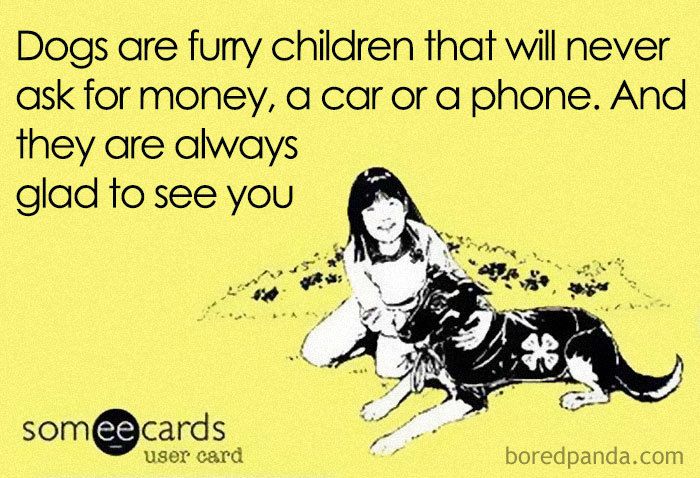
5. I love you even when you are far from me. My love is always with you.
6. If I could choose any child on Earth,
I would still choose you.
7. I love you to the moon, around the stars and back.
8. I enjoyed playing with you today.
9. My favorite memory of the day,
when we are with you ... (what did you do together).
Tell:
10. The story of their birth or adoption.
11. About how you *tendered* them when they were little.
12. The story of how you chose their names.
13. About myself at their age.
14. About how their grandparents met.
15. What are your favorite colors.
16. Which is sometimes difficult for you too.
17. That when you hold their hand and squeeze it 3 times, it's a secret code that means I love you.
18. What is your plan.
19. What are you doing now.
Listen:
20. Your child is in the car.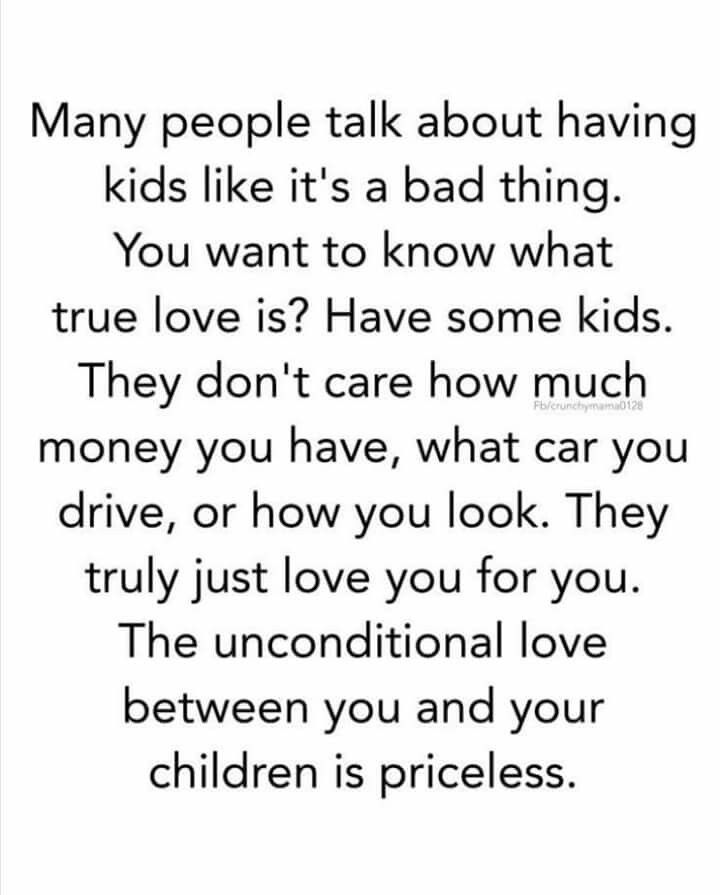
21. What does your child say about his toys, and think about how important this is to him.
22. An issue your child really needs your help with.
23. One second longer than your patience allows.
24. Feelings behind your child's words.
Ask:
25. Why do you think this happened?
26. How can we find out?
27. What are you thinking about?
28. What is your most pleasant memory of the day?
Show:
29. How to do something instead of forbidding it.
30. How to whistle into blades of grass.
31. How to cut food.
32. How to fold laundry.
33. How to look for information when you don't know the answer.
34. Sincere respect for your spouse.
35. That taking care of yourself (taking care of yourself) is very important.
Set aside time:
36. To watch the birds.
37. For your child to help you cook.
38. Go to places together.
39. Dig together in the sandbox.
40. To complete tasks at your child's pace.
41. To just sit with your child while he plays.
Treat your child:
42. Put the chocolate into the pancakes.
43. Post a meal or snack in the shape of a smiley face.
44. Play with them on the floor.
Let go:
How to show your child your love
- Tags:
- Expert advice
- 1-3 years
- 3-7 years
- 7-12 years
- understanding
Every parent wants their child to grow up to be an educated and decent person. We instill in the child the concepts of "good" and "bad", bring up respect for loved ones, care for the younger ones, compassion, then help them adapt to working in a team, learn how to build communication with peers. However, often, finding a common language with a child is much more difficult than learning to say a strict “no” to him.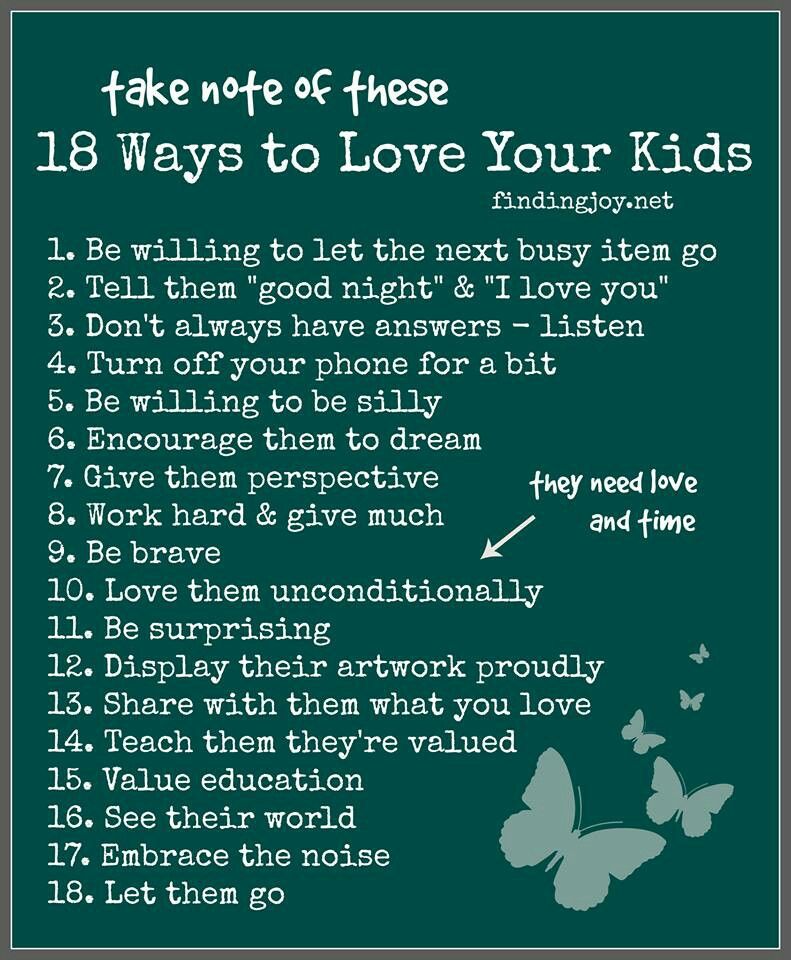 And yet, many psychologists argue that the main thing in raising a child is love, affection, care, attention and support. Often, finding a common language with a child is much more difficult than learning to say a strict “no” to him. What is the best way to show your child your love?
And yet, many psychologists argue that the main thing in raising a child is love, affection, care, attention and support. Often, finding a common language with a child is much more difficult than learning to say a strict “no” to him. What is the best way to show your child your love?
12 hugs a day
Young parents ask themselves questions: “Is it possible to hug a boy or will he grow up weak-willed because of this?”, “Is it necessary to kiss daughters more often than sons?”.
Everyone knows the famous phrase of the American psychologist Virginia Satir: “A child needs four hugs a day to survive; to make him feel good - eight; and in order for him to grow and develop as a person - 12. Of course, this does not mean that you need to start a calendar and mark on it the daily number of hugs with a child. But it is worth remembering that every kid needs affection, even if he strives for independence from early childhood: he ties his shoelaces on sneakers for ten minutes and defiantly runs away when his mother tries to hug him in public. The main need of a child on a subconscious level is to feel loved.
The main need of a child on a subconscious level is to feel loved.
The touch of the parents is just as important for the child as the support of the word. Remember yourself in childhood: when you were scared - you hid behind your parents, when you were upset - you needed a hug, when you were happy - you opened your arms wide and hugged your mother yourself, fervently looking into her eyes from the bottom up. And what did a father's encouraging pat on the shoulder mean to the boys? The child is then ready to move mountains!
To kiss or not to kiss: that is the question
A child can and should be hugged, kissed and praised! The love, attention, affection and care that you gave him in childhood are a kind of support in adulthood. Belief in yourself and your strengths, a dignified attitude towards others and a realistic, positive perception of the world - this is not a complete list of qualities that you can bring up in your baby by hugging and supporting him.
Many parents of boys are faced with a cold expression of love from a child. In public, the son pushes away his mother and grandmother, who are reaching out to him, moves away, and turns his head away in displeasure if they try to kiss him. Your child is shy, but this does not mean at all that he does not need care, attention and affection. Do not show your love in public: you are raising a knight, not a princess! Gently hug your child by the shoulder at home, gently stroke his hair and kiss him on the cheek goodnight. The child will understand that he is loved. And later he realizes that even in childhood, his parents listened to his opinion, took into account his desires.
How not to spoil a child?
Love for a child must be wise: too much affection and tenderness will develop selfishness and kill the independence of the child, an unloved child will grow up offended by the whole world, relying only on himself and not considering others.
How else can you show your love for a child so as not to spoil him with attention? Touch your hands, jokingly ruffle your baby's hair, hug your shoulders, gently stroke your head, pat your shoulder reassuringly. The baby needs your care and affection every day, but especially pay attention to the support of the child if he is very worried, tired, physically injured, ill, experienced stress and a sad event, frightened. It is important to pay attention to the child in the morning and in the evening before going to bed.
The baby needs your care and affection every day, but especially pay attention to the support of the child if he is very worried, tired, physically injured, ill, experienced stress and a sad event, frightened. It is important to pay attention to the child in the morning and in the evening before going to bed.
Ineffective types of parental love
Psychologists distinguish several types of "ugliness" of parental love: affectionate love, despotic and ransom love.
We all love our children, believing that they are unique in everything: in their first smiles, throwing nipples, timid steps. This is true, because every person is individual from birth. But, believe me, the neighbor's children also smile when dad makes them laugh, and funny fall when they learn to walk. The instinctive love of parents for children, sincere joy for every movement of the baby, the unreasonable elevation of a small copy of parents to the rank of saints - this is what young parents should be afraid of.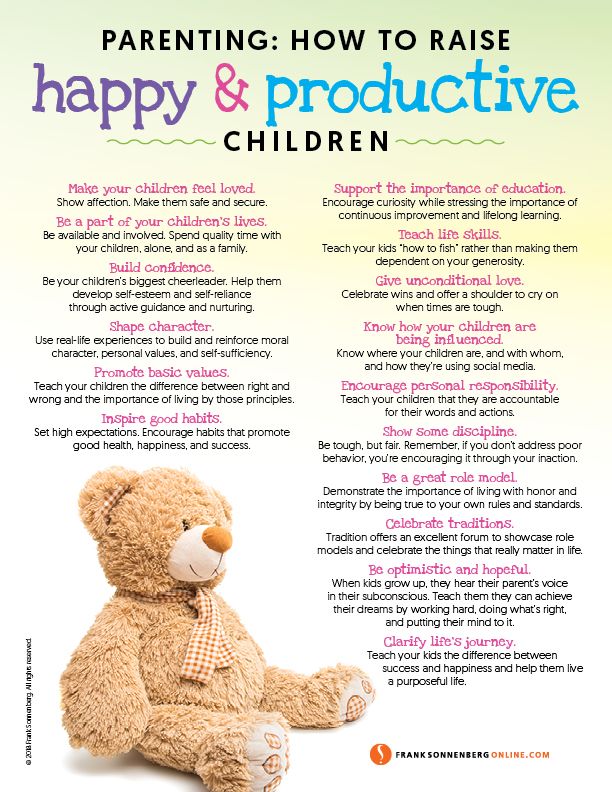
A child brought up in a spirit of tenderness does not know the word “no”, he grows up in permissiveness and believes that he is unconditionally the best in everything. Whims, a painful perception of failure and irresponsibility will become the main character traits of such a child. Constant tenderness will not bring up responsibility for the family, a businesslike approach to work and care for parents.
The other extreme is the arbitrariness of parents: a child studies well, cleans his room, goes to the store, helps in raising his younger brother, is not capricious and does not ask for too much, but still a formidable dad will find something to scold. Undoubtedly, parents have power over their child, and sometimes it is worth saying a firm “no”. But do not abuse this, otherwise there is a risk of depriving the child of the desire to be good and loved. Praise, caress and tell your friends about his success in school! And then your kind and affectionate boy will not become a rude boy in his teens, he will appreciate and respect his parents.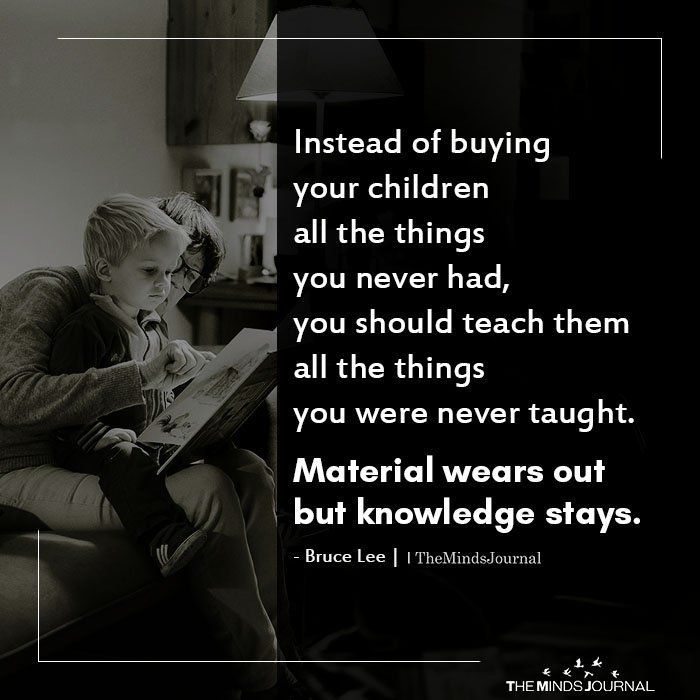
The third kind of unreasonable love is more often inherent in fathers - the love of ransom. A dad on the weekend or a dad providing for the family, stingy with emotions and manifestations of love for his baby is a frequent occurrence in modern family relationships. Fathers should remember that for the full-fledged education of a person with a capital letter, it is not enough to provide him with beautiful clothes, a computer and a couple of tutors. Material well-being will never replace affection, love and paternal advice! If, with such behavior of the father, the mother does not give the child three times more affection, attention and care, the children will feel spiritual emptiness. Do not be surprised if by the age of 18 your son is not characterized by pity, compassion, romance and mercy. He can be withdrawn and stingy with emotions, suffering from it himself.
Parental love should inspire new victories. Believe in your children as you do not believe in anyone else: he will feel your love at the stadium, at the exam, at the first love and after failure.